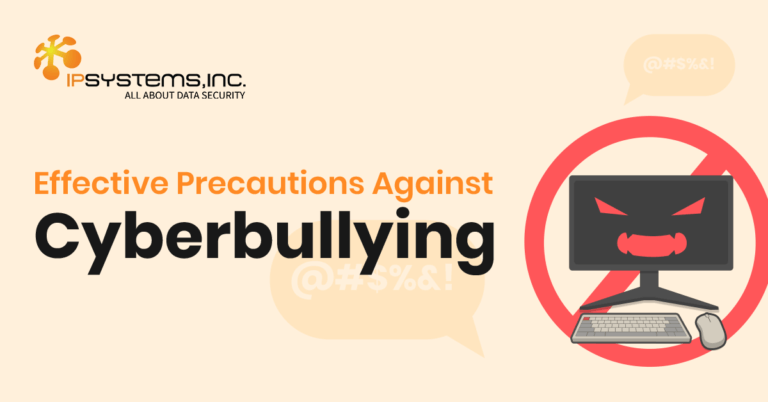
Innovating your Business with Green Data Centers
Blog: Innovating your Business with Green Data Centers Data centers are centralized facilities equipped with essential hardware like servers, storage devices, and networking equipment.

Mobile devices are pretty much the norm in the modern world. But one may say mobile vulnerability has achieved sky-high proportions. With a vast number of unseen threats aiming to collect your personal and confidential data secretly, cybersecurity awareness is no longer an option or a luxury. This article exists to help you learn the importance of mobile security and help you with your baby steps. That's why the title is what it is: Here’s Your Crash Course in Mobile Security. It's nothing academic, and you will have fun reading it.
Look around you, and you'll realize nearly every person around you is peering into the screen of a cell phone, tablet, or computer. When they're not using one, they're at least clutching it tightly. These devices form the fabric of modern living. It's hard to imagine life without contacts, emails, SMS, and so forth. We also have passwords and other private information that need protection from cybercriminals who want them by all means. Such is the basis of mobile security.
Like most other people are inclined to do, you may be taking for granted the information your smartphone holds. Remember, it’s more than just an electronic device. It’s a significant part of you. Just like your physiological health matters, your digital health also matters.
Your mobile phone is a dynamic storage device capable of holding all sorts of data. You use it as much for social networking as you do for banking activities. Because we apply our mobile devices to a broad spectrum of personal uses, these functions make it necessary to safeguard all the information we're storing on them.
A suitable definition for mobile security would be that it’s a means to remain safe from the increasing plethora of threats flooding the digital landscape. These threats are after nothing else but to violate your privacy and collect any information you make available on your phone. If you pay attention to the news, you’ll be familiar with the importance of securing your login information, banking information, and so forth.
Mobile security is increasingly critical in everyday life. Many aspects of personal life are only possible through the digital appendage known as the mobile phone. Even businesses are improving productivity points with the use of mobile devices.
While threat actors can steal or manipulate information on a smartphone, they may not always be aiming for usernames, passwords, or to disseminate phishing emails. Did you know they might have interest in your conversations or the data heap on your phone as well?
One way to remain beyond the attackers' reach is to go for the most comprehensive security tools and software. Install these on your mobile device to protect your privacy. It's quite easy. Clear your browser cache. Do the same with cookies and your browsing history. You can also help yourself by abstaining from the use of public Wi-Fi.
If you appreciate why mobile security matters, you’re well on the way to using your device with a security-first approach.
Since we now live significant chunks of our lives off mobile devices, it’s only appropriate to dip our toes into the implications of this defining cultural shift.
There are ways to prevent the threat that comes with being able to access social media, banking services, private messages, and photos. Granted, the convenience these possibilities provide is second to none.
First, imbibe the culture of using a passcode for your mobile device. Then, ensure that all usernames and passwords are secured on encrypted documents.
Hackers have great experience in hacking mobile devices. It would help if you also learned (by going online) about the many ways they can attack your device. Learn as much as you can [and don't stop learning]. The typical hacker knows more about destruction and backdoors than the regular mobile phone user.
Attackers unleash two major categories of threats on your mobile device. Each one represents a channel, namely:
It's possible (we aren't saying easy) to undo the damage and be more careful afterward. One way is to update the software on your phone regularly. Software makers release updates to plug security holes and ensure that users are safe around the software. You may also use anti-malware to take care of this.Mobile apps are available on app stores, and almost anyone, including you, can download them. However, even when apps are legitimate, there’s still a good chance to download one frothing with malware. What should you do in such a situation? Certainly not panic or die!
It's possible (we aren't saying easy) to undo the damage and be more careful afterward. One way is to update the software on your phone regularly. Software makers release updates to plug security holes and ensure that users are safe around the software. You may also use anti-malware to take care of this.
In one way or another, many of us depend on the web to get through the day. We work on the web, learn via the web, and forge lifetime relationships on the web.
Yet, visiting multiple websites or web applications in one day exposes one to many dangers. It’s that easy to visit a website and download malware onto your device without knowing you’ve done so. Anti-malware solutions can help with this.
Phishing is another way an attacker can steal valuable personal information. A simple defense against phishing is to install security software onto our mobile devices and put a brick wall before the attackers.
The mobile threat landscape is overwhelming. It’s only appropriate that we share some tactics to help you beat them one at a time.
lorem
Mobile devices are a part of modern life. In the face of relentless hackers, it's essential to have considered ways to improve your device data security. Installing antivirus solutions such as Bitdefender is a great start. However, organizations of all sizes can leverage resources from a security solutions distributor such as IPSYSTEMS..



Blog: Innovating your Business with Green Data Centers Data centers are centralized facilities equipped with essential hardware like servers, storage devices, and networking equipment.

Blog: CCTVs: A must-have for every organization Nearly every business and organization, regardless of size, has already implemented CCTV Services within their premises because

Blog: Combating Bullying in Digital Classrooms: Empowering Students for a Safer Learning Environment Bullying is a pervasive issue that inflicts emotional, psychological, and physical